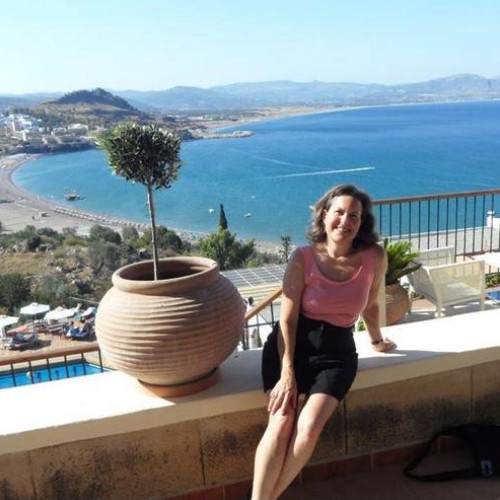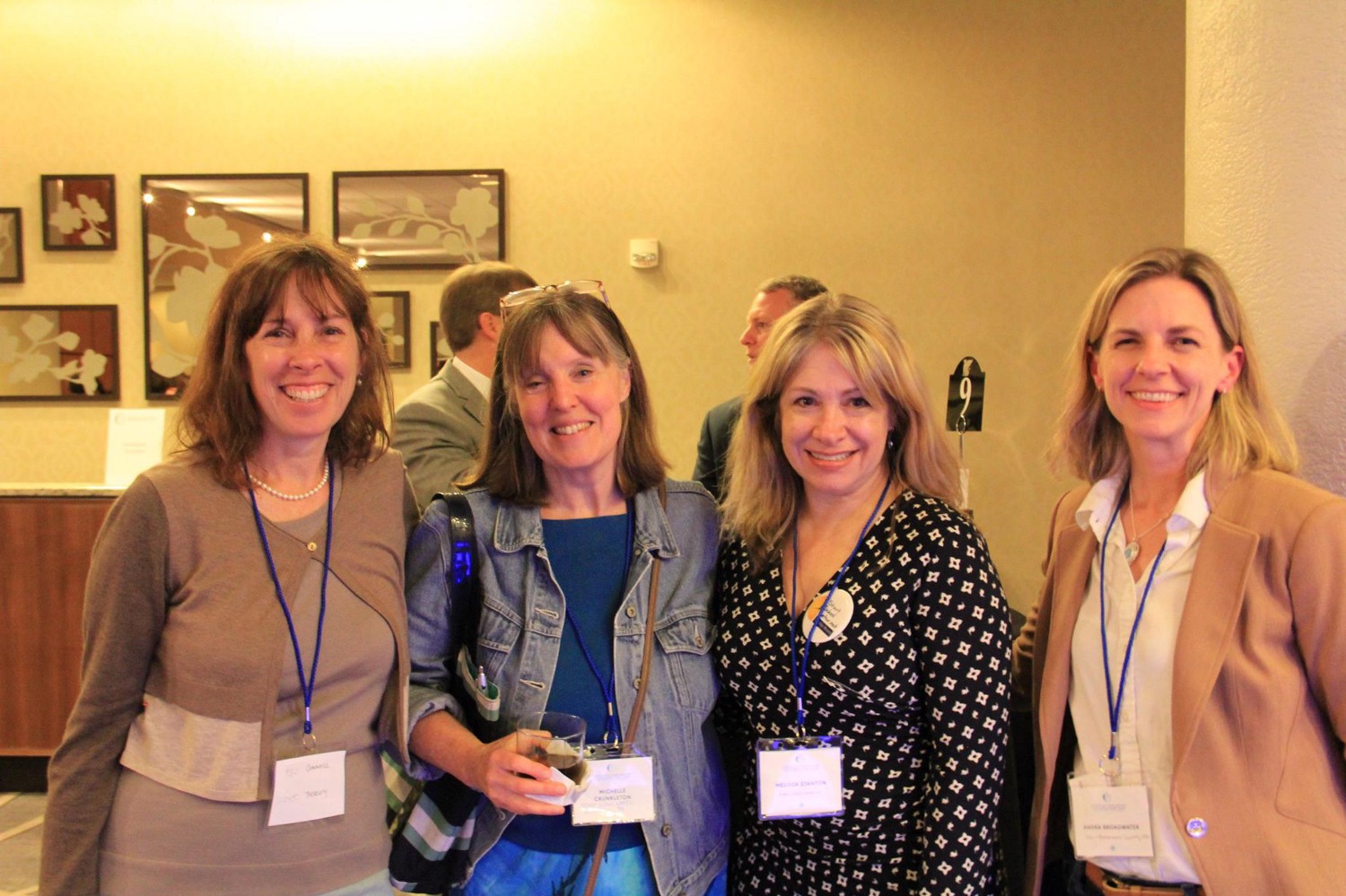Last month health and education leaders from around the USA and beyond gathered in Washington, DC for the inaugural Adolescent Sleep, Health, and School Start Times Conference. This unique event brought together sleep experts, state lawmakers, school administrators, and public health advocates to discuss the “why” and “how” of adopting school day start times that give teens a chance for healthy sleep. The American Academy of Pediatrics, Centers for Disease Control and Prevention, American Medical Association, American Academy of Sleep Medicine, and other health groups have called for middle and high schools to start after 8:30 a.m. to accomodate changes in sleep that occur during puberty.
Conference sponsors included the Yale School of Medicine’s Department of Pediatrics, The RAND Corporation, The Robert Wood Johnson Foundation, and Start School Later, Inc., a national non-profit with nearly 100 grassroots chapters in 25 states and DC, many of whom attended the conference. As volunteers who have advocated for healthy school start times, in some cases for decades, Start School Later (SSL) leaders were well positioned to sum up the conference — and SSL’s Communications Director (and ace on-the-ground reporter) Stacy Simera collected some of them to share.
What follows is a sampling of these take-aways — plus a brief introduction to some of the local heroes working for change around the USA.
1. Sleep and school start times are crucial public health issues.
For Amy Hsi, chapter leader of Start School Later Brighton, NY, one clear message from the conference was that both sleep deprivation and the effort to sync school hours to sleep needs are fundamentally matters of public health.
A nurse practitioner whose work at Planned Parenthood has given her years of experience working with adolescents, Hsi has two sons in elementary school. She is working to delay her district’s middle and high school start times before they attend and ultimately would like to help ensure safe, healthy school hours throughout the Greater Rochester area.
Travelling to DC was worthwhile for Hsi. “It was exciting to have so many experts from diverse fields in one place, and to be in the same room with authors of frequently cited articles,” she said. “Having the blend of scientific evidence with proven ‘how to’ stories of what worked to effect change in other school districts was key!’”
The most memorable session for Hsi was Rafael Pelayo’s. She was impressed with how this esteemed sleep physician and Stanford professor made the case for starting school later easy for any parent or layperson to understand. “He was able to frame sleep deprivation as a crucial public health issue using humor and making parallels to eating and nutrition.”
2. There is a cost-neutral solution.
Michelle Crunkleton, chapter leader of SSL’s Bucks County, PA chapter, found the Transportation Breakout Session the most informative. Here school transportation experts dispelled myths about potential costs of changing bus schedules, explaining that determining costs is an iterative process, with costs much more malleable than many communities are led to believe.
“I guarantee you…in every district there is a cost-neutral solution,” said panelist Ken Smith, an associate professor of accounting at Central Washington University who has served as a school board member in Bothell, WA’s Northshore School District.
“The devil is in the details,” agreed Jeffrey Platenberg, assistant superintendent for Fairfax County (VA) Public Schools’ facilities and transportation department. Platenberg helped implement healthier school start times in his district, where a fleet of over 1,520 buses transport over 110,000 students each day.
Crunkleton returned to Bucks County energized to explain why healthy hours are not prohibitively expensive. “It’s a matter of sitting down with a group of dedicated, knowledgeable people, and some good busing software, and working on it, and coming up with a variety of scenarios, and the cost of each,” she concluded. “It may take work, but it is doable, and when we consider that the health and well-being of children is at stake, I think it is worth putting in the time and energy to figure out something that will work for the community.”
3. We can find solutions by bringing diverse experts together.
Gail Karafin, a licensed psychologist in independent practice and school psychologist who leads Pennsylvania’s statewide SSL chapter, was impressed with the diverse group of experts that the conference brought together, including many who had conducted landmark research. Every presenter, she said, provided their research or experiences concisely but thoroughly.
“The format was fast-paced and inspiring,” she said. “We had speakers on biology, [education] research, school district experiences, legislation, and advocacy. It was all covered. I was thrilled to see Judith Owens, Mary Carskadon, Amy Wolfson, and Kyla Wahlstrom, just to mention a few, all together.”
4. More state lawmakers should act.
Jenny Silberman, co-leader of the Wayland, MA chapter who also serves as SSL’s Outreach Director, said she was particularly gratified to hear California Senator Anthony Portantino speak about his leadership role. Portantino’s bill, SB328, would set 8:30 a.m. as the earliest allowable start time for California’s middle and high schools.
“Setting this boundary at the state level will ensure that teens are able to get the sleep they need and allows communities to determine how to meet that goal,” said Silberman, who has a background in both nursing and public health. I am eager for more legislators to soon follow suit. As Senator Portantino noted, ‘our children’s health is at stake.’”
5. There’s no other side to this issue.
Simera herself, an award-winning social worker who serves as SSL’s Communication Director and leads the Northeast Ohio chapter, hosted SSL’s table during the conference and fielded many questions and comments. She witnessed an “epiphany moment” near the end of the first day when an education official approached her to say that his school had initially balked at sending him to the conference because Start School Later was a co-sponsor.
“His hesitation was based on the fear that the conference would be slanted,” Simera explained. “But after hearing the research he knew there wasn’t ‘another side’ to the issue. ‘StartSchoolLater.net is like StopMalnutrition.net or KeepKidsFromSmoking.net,’ he said. That was the best thing I heard at the conference.”
6. Objections to sleep-friendly bell times are about adult convenience.
Melissa Stanton of Davidsonville, MD and SSL’s Legislative Director, met with Senator Portantino during the conference to discuss his bill, which she says represents a historic step by restricting how early schools can require attendance.
The message Stanton heard from Portantino was loud and clear: while the topic of moving bell times often sparks fears and speculations about what might happen, ultimately all the objections are “all adult-based” and have nothing to do with the health or well-being of children.
7.You hear the same excuses for inertia worldwide.
Kari Oakes is a physician assistant in Wisconsin and directs SSL’s research and development efforts. Sitting next to an attendee from Singapore, one of several attendees from outside of the United States, made her realize that the Start School Later Movement was international — and that people around the world faced similar challenges.
“She told me that many Singapore children are experiencing the same problems as our children,” said Oakes. “And she said that parental objections also revolve around maintaining the status quo — exactly what we hear from communities all over the USA.”
8.Starting school later is a moral issue.
SSL’s Chapter Director and Texas state chapter leader Debbie Moore’s primary take-away was a collection of quotes, including a comment from a participant that “school start times is a moral issue.” Moore collected too many compelling quotes to share here, but here are some of her favorites:
“It is not the science. It is the politics that is preventing change.” — Terra Ziporyn Snider, Start School Later (thanks, Debbie!)
“The time we spend sleeping, which is a third of our lives, affects the quality of the other two-thirds of our lives.” — Senator Anthony Portantino
“We can’t balance school district budgets on the backs of our kids, putting health, safety, and learning at risk now and later in life.” — Darrel Drobnich, MidAmr Group
·“Children lose more sleep than any other population. — Charles Czeisler, Harvard Medical School
Moore wasn’t the only person who found many insightful quotes at the conference. Follow the hashtag #SSTConf2017 to read more.
Visit Our Website | Sign Our National Petition | Join Our Newsletter | Follow us on Facebook| Join a Chapter | Make a Donation
Follow Terra Ziporyn Snider, PhD on Twitter: www.twitter.com/terraziporyn
Originally published at medium.com


